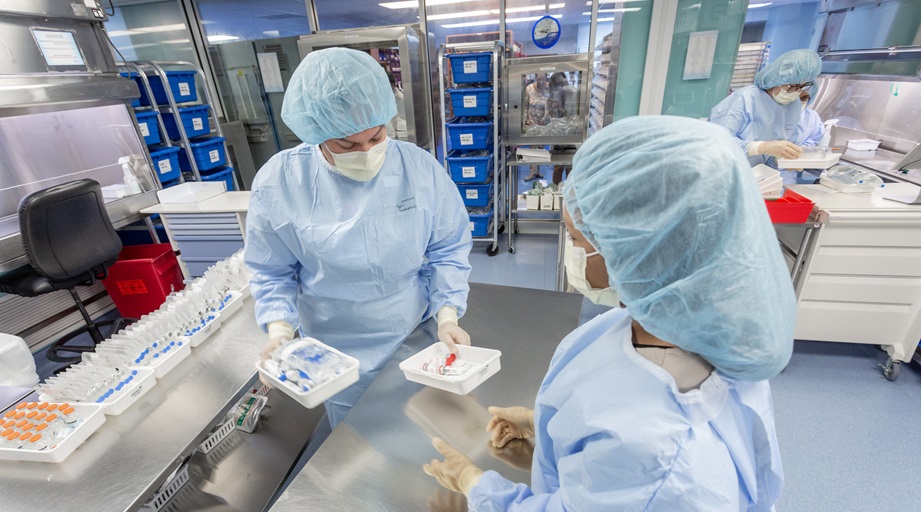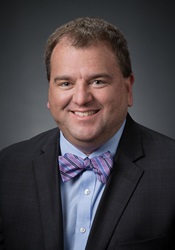

Do you have questions about how to meet The Joint Commission’s expectations for complying with the revised US Pharmacopeia (USP) compounding standards? Get the answers you need on Dec. 3 at the Midyear session 2023 Sterile Compounding Updates from The Joint Commission.
“We want to make sure healthcare organizations understand what we expect from them in relation to the new compounding standards, and we want them to succeed,” said Robert C. Campbell, director of The Joint Commission’s standards interpretation group and the session’s featured speaker.
Campbell will cover the most common USP-related questions pharmacists are asking The Joint Commission, and he will offer guidance on challenges that occur during surveys.
Campbell was interviewed about the Midyear session in advance of the meeting. What follows is an edited transcript.
ASHP: What’s the most important reason to attend this session?
Campbell: The main reason is to learn how The Joint Commission is approaching the updates to chapters <797> and <800>. These areas — sterile compounding and hazardous drug handling and compounding — are high risk, and they have received a lot of attention during Joint Commission surveys.
We also want to make sure people are not over-interpreting the new requirements, so I hope we can clear up any misconceptions for the attendees.
What are the biggest compounding-related changes in The Joint Commission's medication management standards?
We completely rewrote one of our standards on medication management to address the USP changes. And we are moving all of the compliance scoring related to compounding to the medication management chapter, instead of using multiple chapters to assess compliance. So, I hope that helps simplify the assessment process.
What do pharmacy staff need to do differently with their compounding operations to comply with USP and Joint Commission requirements?
They need to review the equipment they are using and the setting in which they are using it, because of a major change to the USP chapter related to segregated compounding areas.
Before this revision, you could use a glove box in a segregated compounding area and be able to utilize longer beyond-use dates. However, under the revised chapter, that is not permitted. So that does have an impact, especially on small healthcare organizations that may have fewer resources.
What do surveyors expect to be the most challenging compliance areas?
Immediate-use compounding, because there are more stringent training, education, and competency requirements for that now.
The challenge is that pharmacy leadership may not be aware of all staff outside of the pharmacy who utilize immediate-use compounding or where it takes place. It is not just pharmacy staff; it is nurses, technicians, respiratory therapists, et cetera. So you need to make sure all of these immediate-use compounders have their competencies updated.
The requirement for more frequent surface sampling is another challenge. It is imperative that surface sampling is completed appropriately and correctly. Healthcare organizations may choose to complete surface sampling inhouse instead of using a service to do it. But that brings along a lot more requirements and responsibilities for staff training, storage of the samples, reading the samples.
Full implementation of a quality assurance program is another challenging area. It requires understanding how compounding practices are evaluated and what corrective actions may need to be taken. It involves taking a much more holistic approach than previously required actions.
What patient care benefits are related to compliance with the revised USP and Joint Commission requirements?
Patient care benefits include protecting patients from potential infections, ensuring an accurate and stable medication is provided to patients for use, and protecting staff from hazardous medication exposure during compounding.
2023 Sterile Compounding Updates from The Joint Commission, takes place Sunday, Dec. 3, 8–9:30 a.m., at Anaheim Convention Center Ballroom A, Level 3. Campbell will be joined by session moderator Michael Ganio, senior director of pharmacy practice and quality for ASHP.







